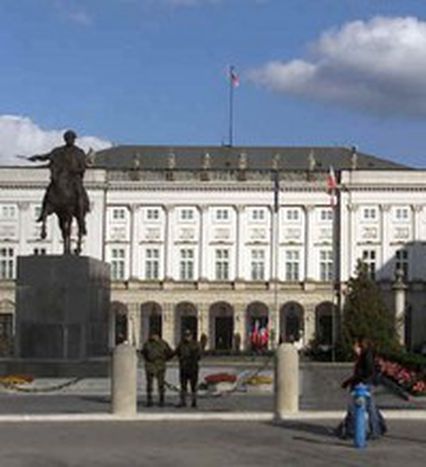
Weak election campaign in Poland
Published on
Translation by:
 inga petersen
inga petersen
Poland is electing a new parliament on September 25 and a new president two weeks after that. But attention is more focused on the past than the future, as the resignation of the left-wing presidential candidate, Cimoszewicz, shows.
Voting may be done in secret, but election campaigns normally are not. It is the first time in post-communist Poland that elections to the Sejm (parliament) and the post of president will come in such quick succession. And yet during the summer, the election campaign has been anything but dynamic. However, it seems as though things are hotting up for the autumn: Wlodzimierz Cimoszewicz, the Democratic Left Alliance (SLD) candidate for president who seemed almost certain to win in July, has surprised everyone by throwing in the towel after controversy caused by a financial scandal which happened three years ago. The centre-right outsider, Donald Tusk, is now topping the polls.
The decline of Solidarity
Poland seems to be more interested in its past than in its future. 25 years ago, shipyard workers on strike in the Polish port of Gdansk kick-started a new freedom movement, the trade union Solidarnosc (Solidarity). This led to the first free elections in 1989 and precipitated the fall of communism throughout Europe. Ever since, the Polish have been searching for a distinctive national identity. The formerly unifying force of Solidarnosc is currently in turmoil: the union, which has shrunk from 10 million to 600,000 members, has long been incapable of nourishing a feeling of a unified Polish identity. Lech Walesa, the original leader of the movement and later Poland’s first freely elected president, is perceived by many to be the traitor of Solidarnosc’s ideals and is currently about to leave the trade Union.
Prying over politics
The country is caught up in its own affairs: coming to terms with communism, identifying former spies and secret service agents, as well as corruption scandals concerning ex-Prime Minister Miller dominate the daily political agenda. Legitimate investigative work becomes invasive and the media’s preoccupation with big scandals overshadows serious political debates. As a result, politics is lowered to the mere administration of the state rather than seriously changing living conditions. All the while, the problems remain obvious: nearly one in five Poles is unemployed; the best Polish university is to be found at number 400 in international rankings; Poland is on a par with Peru when it comes to corruption, according to the corruption index of Transparency International; and children suffer from malnutrition in the province of Lubelskie, at the heart of Europe. However, neither political parties nor presidential candidates seem to be able to offer a constructive vision and a pragmatic programme. Polls regarding the Sejm elections suggest it will be a close race between the populist-conservative PiS (Law and Justice) and the liberal-conservative PO (Citizen’s Platform), while the left-wing populist party Samoobrona (self-defence), the Democratic Left Alliance and the nationalist-conservative League of Polish Families are losing ground.
Poland led by twins?
Until recently, the presidential race was down to two professors of law: the mayor of Warsaw, Lech Kaczynski (PiS), and the former Prime Minister and Minister of Foreign Affairs, Wlodzimierz Cimoszewicz (SLD). However, rumours of irregular tax declarations rendered the hopes of the latter insignificant. If Kaczynski is elected president and the PiS is the winner of the parliamentary elections, he would share the political lead of Poland with its leader, his identical twin brother Jaroslaw, who would become Prime Minister. This would blur the border between the two posts not only visually but also from a political point of view. Nevertheless he still has to beat the historian Donald Tusk (PO) who claims to be “a man with principles”. He is the only candidate whose popularity is currently increasing and is furthermore supported by Lech Walesa and the renowned heart surgeon Zbigniew Religa among others, even though the latter is himself aspiring to become president.
In the end, the past is likely to be more decisive than future perspectives when it comes to electing the new president. The spirit of Solidarnosc, still entrenched in the collective consciousness, could bring into focus where the candidates stood during the summer of 1980. Kaczynski spontaneously supported the workers of the Lenin shipyard and Tusk supported Solidarnosc with clandestine publications. Cimoszewicz on the other hand was busy improving his English in the US.
Translated from Kraftloser Wahlkampf in Polen


